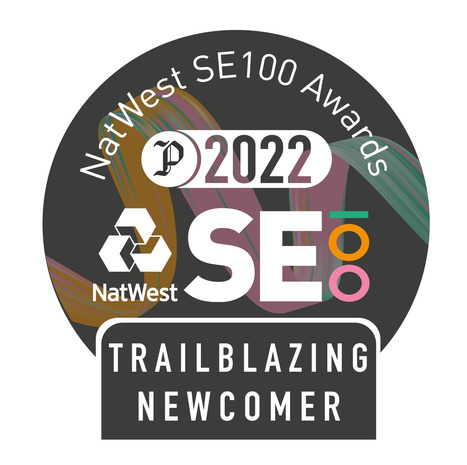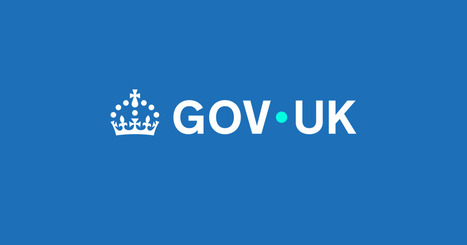 Your new post is loading...
 Your new post is loading...

|
Scooped by
heather dawson
January 31, 7:21 AM
|
Language is a major source of systemic inequities in science, particularly among scholars whose first language is not English. Studies have examined scientists' linguistic practices in specific contexts; few, however, have provided a global analysis of multilingualism in science. Using two major bibliometric databases (OpenAlex and Dimensions), we provide a large-scale analysis of linguistic diversity in science, considering both the language of publications (N = 87,577,942) and of cited references (N = 1,480,570,087). For the 1990–2023 period, we find that only Indonesian, Portuguese, and Spanish have expanded at a faster pace than English. Country-level analyses show that this trend is due to the growing strength of the Latin American and Indonesian academic circuits. Our results also confirm the same-language preference phenomenon (particularly for languages other than English), the strong connection between multilingualism and bibliodiversity, and that social sciences and humanities are the least English-dominated fields. Our findings suggest that policies recognizing the value of both national-language and English-language publications have had a concrete impact on the distribution of languages in the global field of scholarly communication.

|
Scooped by
heather dawson
January 27, 5:32 AM
|
Understanding China through Digital Anthropology questions our understanding of digital technologies by demonstrating fundamental differences in the meaning of both technology and the digital between China and the West. This follows from a longstanding historical divergence in the meaning of and attitude to the relationship between technology and humanity. The book also challenges our understanding […]

|
Scooped by
heather dawson
January 24, 5:35 AM
|
Deaf Perspectives: Past, Present, and Future

|
Scooped by
heather dawson
January 22, 12:00 PM
|
The Preparedness Agenda: State of the UK’s Black-led Impact Organisations This new report from Do it Now Now draws on insights from 115 Black-led organisations, shifting the focus from resilience to preparedness.
It explores funding realities, leadership, governance and what’s needed to help Black-led ventures move from surviving to thriving.

|
Scooped by
heather dawson
January 22, 10:49 AM
|
The presence of ethnic disparities in sentencing poses a serious challenge to the fairness and legitimacy of the criminal justice system. Previous research on this topic has examined only the Crown Court,

|
Scooped by
heather dawson
January 15, 4:01 AM
|
Year Two report highlights milestones achieved by the Commitment which tracks progress on improvements on the higher education experience for disabled students.

|
Scooped by
heather dawson
December 31, 2025 6:42 AM
|
Living Refugee Archive
The Living Refugee Archive (LRA) is home to a growing collection of resources relating to refugees and forced migration. The Living Refugee Archive was originally established as part of a civic engagement project entitled `Democratic Acces or Privileged Exclusion: Civic Engagement through the Preservation of and Access

|
Scooped by
heather dawson
December 18, 2025 11:33 AM
|
Over 30 million people were violently uprooted from Africa for enslavement. No country with a legacy of enslavement, the trade in enslaved Africans and colonialism has fully confronted this past or repaired its continuing impact. Around the world, calls for reparatory justice have been growing. Some States, universities, religious groups and businesses that profited or continue to profit from this past have started to act. Delivering reparatory justice is more urgent than ever. And international human rights law offers a powerful framework to move forward. To help unpack this issue, UN Human Rights has created a series of easy-to-read thematic explainers based on UN reports. These explainers highlight the key elements needed to deliver reparatory justice — along with concrete examples of action already taken.

|
Scooped by
heather dawson
December 18, 2025 11:17 AM
|
The PALABRA Archive is a collection of audio recordings of 20th and 21st century poets and writers from Luso-Hispanic and U.S. Latino communities reading from their works. Some can now be streamed online. They include See the list of digital sounds and browse the catalogue of other items available in the Library by author and region Some read in Spanish and Portuguese

|
Scooped by
heather dawson
December 15, 2025 9:27 AM
|
'What 'Really' Works for Black and Asian Organisations' A new report has been published, out of the National Capacity Building Conference held last year. 'What 'Really' Works for Black and Asian Organisations' refocuses on the structural barriers Black and minoritised organisations face, making a strong evidence-based case for equitable resourcing and sustained investment.

|
Scooped by
heather dawson
December 14, 2025 4:53 PM
|
New research from the Race Equality Foundation and Joseph Rowntree Foundation shows how the NHS can stop waiting for perfect ethnicity data and start using existing data to tackle health inequalities today. The report highlights barriers, practical solutions, and urgent recommendations for action.

|
Scooped by
heather dawson
December 10, 2025 2:10 PM
|
As the world becomes increasingly reliant on artificial intelligence (AI) and digital technologies, the ability to communicate, learn, and participate online depends heavily on language. Yet, most of the world’s linguistic diversity remains excluded from the digital realm — and with it, millions of people risk being left behind. To address this growing inequality, UNESCO launched the Global Roadmap on Multilingualism in the Digital Era: Advancing the Role of Language Technologies during the Second World Summit for Social Development.

|
Scooped by
heather dawson
December 10, 2025 11:40 AM
|
Artist who once draped Barbican in brightly coloured fabric says he is humbled by recognition in ArtReview rankings
|

|
Scooped by
heather dawson
January 29, 11:20 AM
|
Progress and Stubborn Barriers in the Inclusion of Disabled Students Disabled Students UK is delighted to conclude Disability History Month with the release of the 2024 Access Insights Report. The second year of the Annual Disabled Student Survey

|
Scooped by
heather dawson
January 24, 5:37 AM
|
A useful section of the National Archives website which provides examples of projects local services have been undertaking to make their services more inclusive The Inclusion Hub now features:

|
Scooped by
heather dawson
January 23, 8:16 AM
|
Calls to expand public investment in the arts often treat the existing cultural and institutional landscape as a given. Defund Culture challenges this assumption, asking instead what kinds of culture are being supported, through which institutions, and to whose benefit. In pursuing these questions, the book turns attention to the structural inequalities that shape Britain’s creative and intellectual life. Drawing on critical theory, political philosophy, and cultural policy, Hall shows how the dominance of white, male, middle- and upper-class voices in the arts, media, and academy is sustained through longstanding funding arrangements and institutional hierarchies. Expanding access within this system (e.g. through social mobility initiatives)—however well intentioned—will not, on its own, produce structural change.

|
Scooped by
heather dawson
January 22, 11:58 AM
|
from the Womens resource centre

|
Scooped by
heather dawson
January 21, 7:09 AM
|
Policy and prosecutorial responses to the summer 2024 riots delink the violence from racism, paving the way for anti-immigration and Islamophobic protests and far-right vigilantism to form an infinite loop. A unique study published today by the Institute of Race Relations (IRR) finds that policy and prosecutorial responses to the Summer 2024 riots that followed the brutal killings of threeRea

|
Scooped by
heather dawson
December 31, 2025 6:43 AM
|
Displaced Voices:
A Journal of Migration, Archives and Cultural Heritage
Displaced Voices Volume 4 (Autumn 2025) is guest edited by Dr. Rumana Hashem and celebrates the 10th Anniversary of the Living Refugee Archive virtual portal. In this volume, we are very pleased to include a range of articles and poetry from collaborators we have worked closely with over the past decade focusing on both academic and community-based practices for documenting and preserving the lived experiences of displacement.

|
Scooped by
heather dawson
December 18, 2025 11:39 AM
|
The library profession has increasingly acknowledged the importance of diversity, equity
and inclusion (DEI) in shaping collection development strategies (Baildon et al., 2017;
Ciszek & Young, 2010). Over the past decade, various studies have explored how libraries
are incorporating DEI principles into their collection practices, focusing on areas such as
assessment, policy development and strategies for diversifying collections, along with the
challenges these efforts present (Backowski & Morton, 2020; Baildon et al., 2017; Ijeh & Cln,
n.d.; Lee-Crossett, 2020). However, similar research in the field of archives is less common,
highlighting a significant gap in both research and practice. DEI has become a priority for
both libraries and archives, which share the goal of preserving and providing access to
knowledge (Baildon et al., 2017; Belmonte & Opotow, 2017). Despite this common aim,
their distinct purposes and audiences affect how DEI principles are applied. Libraries and
archives have different collection development processes, priorities and methodologies, but
both must ensure their holdings reflect diverse, inclusive and representative
communities. While libraries and archives both focus on DEI, archives –
particularly dark archives – face unique challenges in achieving balanced and
unbiased collections.

|
Scooped by
heather dawson
December 18, 2025 11:27 AM
|

|
Scooped by
heather dawson
December 17, 2025 2:15 PM
|
From the formation of the plantation slave economy to the modern-day climate crisis, we map how empire and extractive capitalism shaped Barbados, Britain and the wider world.

|
Scooped by
heather dawson
December 15, 2025 9:26 AM
|
Explore the emotional and professional impact Black excellence demands and discover strategies for creating equitable workplaces with founder Natasha Williams.

|
Scooped by
heather dawson
December 11, 2025 4:22 AM
|
New research exposes racist reality of UK citizenship stripping laws that place 3 in 5 people of colour at risk.

|
Scooped by
heather dawson
December 10, 2025 11:43 AM
|
|


![Unprofessional peer reviews disproportionately harm underrepresented groups in STEM [PeerJ] | Race and diversity | Scoop.it](https://img.scoop.it/Px8lH3jN4dllcvRubTO3hDl72eJkfbmt4t8yenImKBVvK0kTmF0xjctABnaLJIm9)


 Your new post is loading...
Your new post is loading...


















